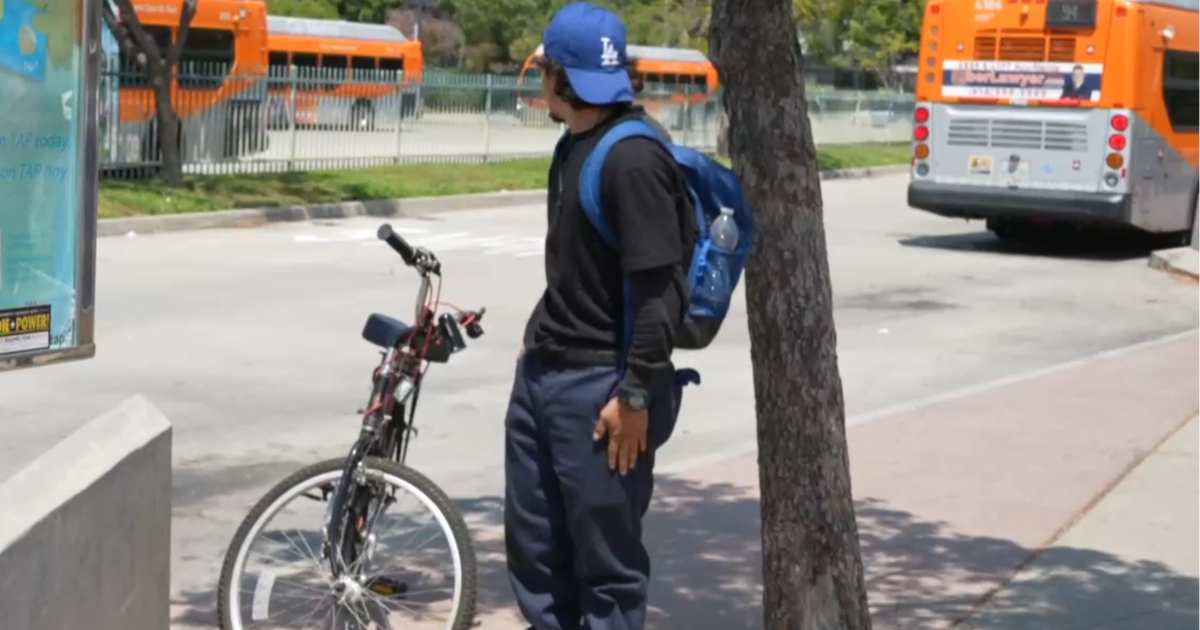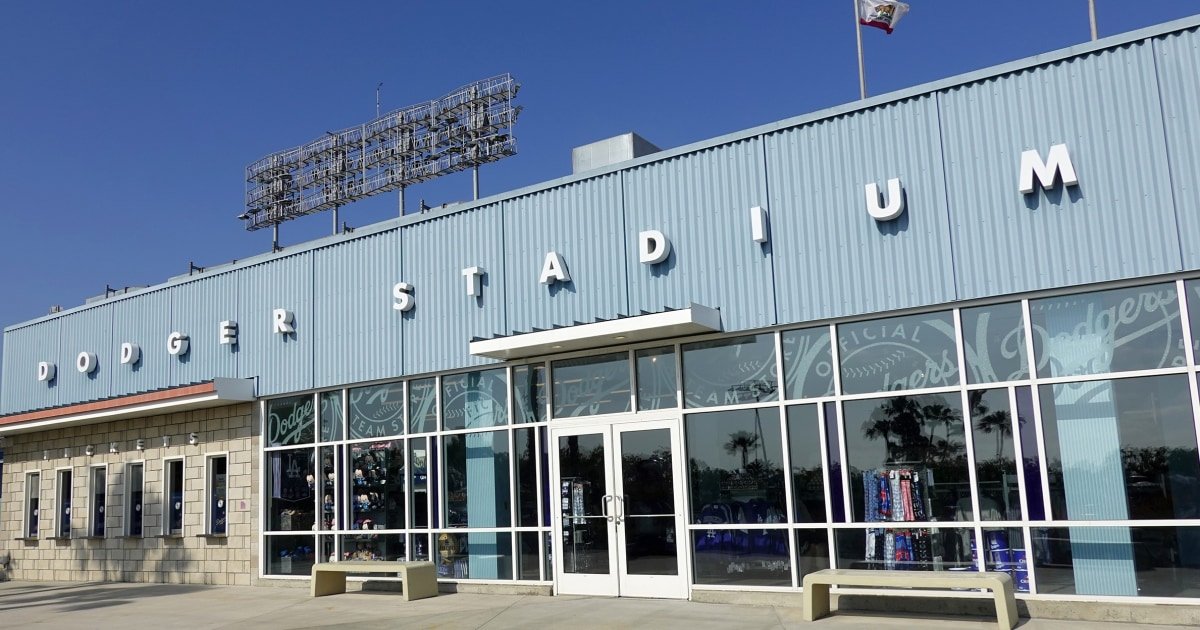Los Angeles — Getting to work is work for Franchescoli Andrade, who rides his bike, hops on a train and then takes a bus every day.
His 20-mile journey from South Los Angeles to the San Fernando Valley takes about 90 minutes each way.
“Half an hour just to get to downtown, to get to the train station, then another half-an-hour just to get from the train station to get here, and then the bus will take me straight to my job,” Andrade told CBS News. “I would do this journey every day just to get my family through.”
His journey was easier when he had a car. But following a crash, fixing it just cost too much for Andrade, who is the sole provider for his family.
“It’s almost like a struggle, every paycheck,” Andrade said.
To cut down on daycare costs, his wife stays at home with their young son.
“It’s heart wrenching, you know,” Andrade said. “Because it makes me feel like I’m not enough, you know, as a human. Like, I’m not really doing much.”
Andrade’s family’s struggles mirror that of millions in California. According to a study released earlier this year from the nonprofit United Way, 35% of California households — or about 3.8 million households — do not make enough to afford basic costs of living, such as rent, groceries and gas.
United Way CEO Pete Manzo says the study is just a snapshot of a national problem.
“It’s a crisis we’ve been living with,” Manzo told CBS News. “It’s like we’re running a high fever. We have too many households where people are working hard and they can’t earn a decent standard of living.”
One of the biggest challenges is access to transportation. AAA says the cost of owning a new car — including monthly payments, insurance, maintenance and fuel — runs more than $12,000 per year for the average American household.
“You’re basically saying to a family, it’s going to be a $1,000 a month or more to get to and from work, to get to and from school,” Manzo said. “It’s not cheap.”
The costs may not be as high in some other states as in California. But nationwide, taking into account inflation, the financial burden of transportation is steadily rising, along with housing and childcare, United Way analysis has found.
Manzo says that advising families in California to move somewhere more affordable isn’t necessarily a practical solution.
“For one family, that might be a decent idea,” Manzo said. “But it’s pretty disruptive to just pick up and leave all your other family relationships and all your community ties to move somewhere to make it cheaper…Expecting them all to move somewhere cheaper just doesn’t make sense.”
For now, Andrade is saving up to afford a car for his family.
“They tell me, you know, don’t give up, you got this.”
#Californians #high #transportation #costs #put #owning #car #reach



